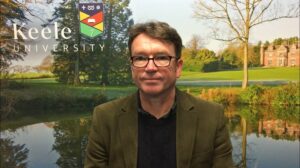Effect of speed on flow and enjoyment for driving
Speed management is an important component of road safety. This presentation presents evidence suggesting a key element is missing from road safety campaigns - acknowledgment that speed is inherently enjoyable.
This study of UK road users was designed to assess whether flow theory predicts the enjoyment of the sensation of speed in the contexts of road driving and riding a rollercoaster. Participants viewed five first-person videos from a car-driver perspective under the conditions: congested traffic, 20mph, 25mph, 30mph, 35mph. As a counterpoint to road driving, comprising an experience designed for enjoyment of rapid speed, they also viewed three rollercoaster videos. Participants rated experience of flow and enjoyment after each video.
Flow and enjoyment ratings were increased at faster speeds compared with slower speeds for the road and rollercoaster contexts. Findings are consistent with a flow explanation of speeding, such that increased speed leads to increased flow experience. Sensation seekers may be more prone to such motivation to speed, although further research is needed to verify this. We recommend for enjoyment and flow to be considered in anti-speeding campaigns and for driving to be re-designed to facilitate flow at slower speeds.

Dr Richard Stephens, Senior Lecturer in Psychology, Keele University
Richard Stephens has been a psychologist for over 20 years and has developed an international reputation for research.
Richard is passionately interested in science communication and his book, Black Sheep The Hidden Benefits of Being Bad (Hachette), included a chapter on speeding and why motorists do it. This lead Richard to the research and ideas to be presented. The book won the 2017 British Psychological Society Book of the Year Award (Popular Science Category). Previously, Richard won the 2014 Wellcome Trust & Guardian Science Writing Prize.
Richard was appointed Chair of the British Psychological Society Psychologist and Digest Editorial Advisory Committee in October 2020, having served on it since January 2017. He is also deputy chair of BPS Research Board (appointed October 2021) and a former Chair of the British Psychological Society Psychobiology Section (2013-2017).
